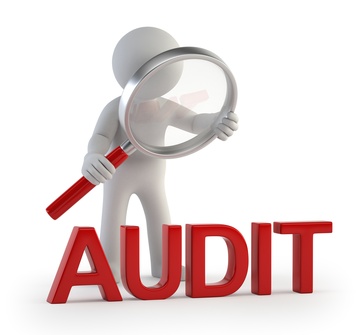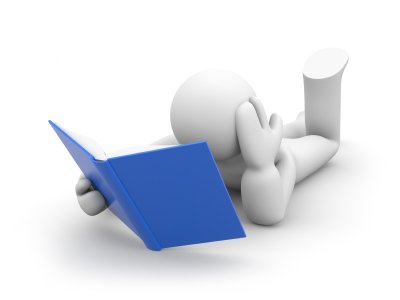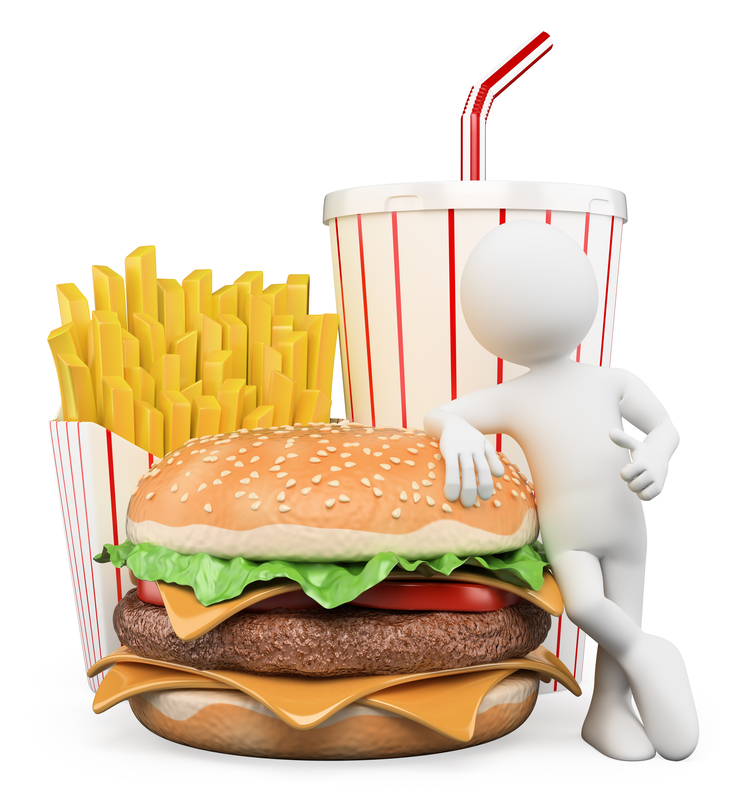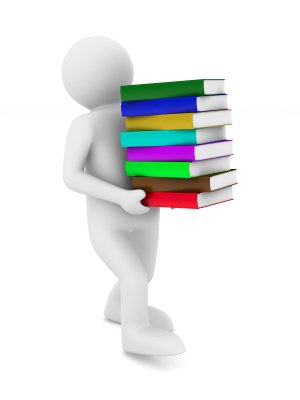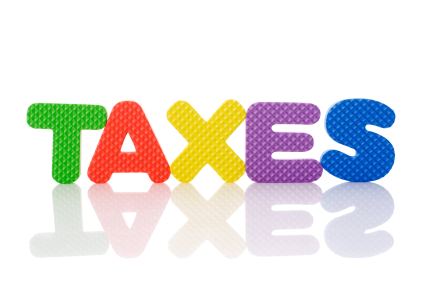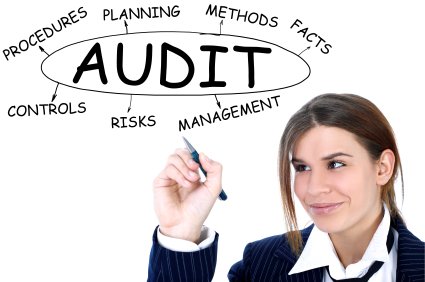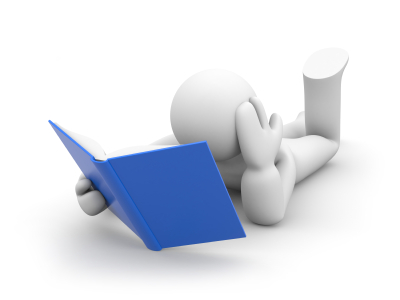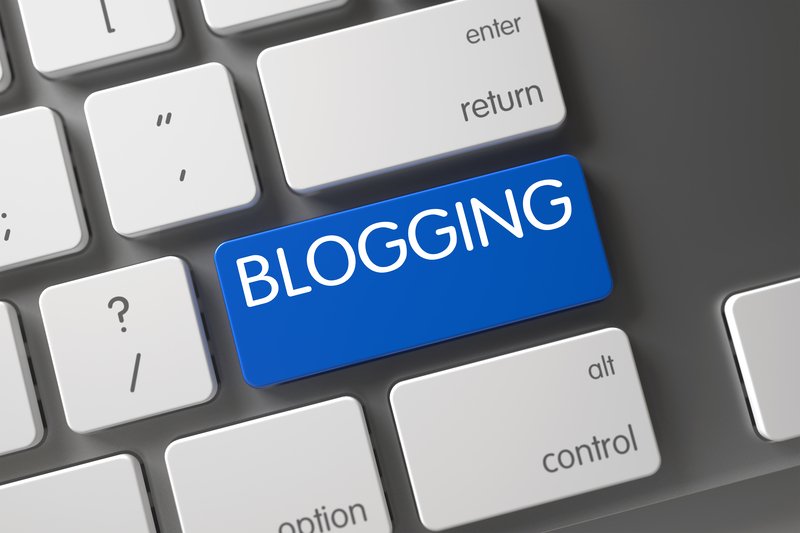- Essential Bookkeeping Habits For Audit Ready Books in Canada
- Canadian Income Tax Compliance
- Self Employed Tax Deductions
Canadian Self Employed Tax Deductions
The T2125 Statement of Business or Professional Activities - Line By Line
By L.Kenway BComm CPB Retired
Revised July 31, 2024 | Edited May 20, 2024 | Updated March 19, 2024 | Originally published on Bookkeeping-Essentials.com in 2010.
WHAT'S IN THIS ARTICLE
Allowable Self Employed Tax Deductions | Rules For Deductibility | Reasonable Expectation of Profit | Why You Want A Business Journal | Link to Line Expenses | Image Index
NEXT IN SERIES >> T2125 Non-Allowable Expense Deductions
T2125 Filing Deadlines
Self-employed persons and their spouses have until June 15th to file their annual T1 benefit and tax return which should include schedule T2125. However, to avoid interest charges, pay your taxes owing by the Balance Due Date of April 30th, even if you are filing later.
Don't know how much tax is owing - your bookkeeper or accountant will be happy to ESTIMATE the amount for you to pay. If you've been making quarterly tax installments, don't forget to factor that into your calculation.
More >> Self-employed deadline notes
Self employed tax deductions create tax benefits and tax savings for sole proprietor business owners in Canada. Here is a line-by-line review of tax deductions on T1 Schedule T2125 for the unincorporated business. Ensure you have the proper supporting documentation for all your T2125 tax deductions.
 Don't put your feet up until you've filed your tax return!
Don't put your feet up until you've filed your tax return!Are you looking for a little assistance on how to fill out T1 Form T2125 - Statement of Business or Professional Activities? The T2125 form is where you claim your self-employed tax deductions.
How Are Sole Proprietors Taxed In Canada?
Gross Business Income*
(is not taxed)
- Allowable Business Expenses**
(tax deductions)
= Profit (is taxed)
*it includes your cash sales and barter sales
**excludes sole proprietor draws
If you are wondering what a tax deduction is, the sidebar on the right hand side shows you they are business expenses allowed under the Income Tax Act (ITA). You want tax deductions!
In this chat, we'll be spending some time looking at allowable business expenses in Part 4 of Form T2125. Use the information to help gather the supporting documents your accountant will need to prepare this tax form.
As a self-employed business owner, you have a tax planning opportunity to reduce your taxes through some favorable tax rules and income calculations. By knowing what business expenses are tax deductible, you can reduce your business taxes.
Annual tax preparation isn't really fun but it is necessary, so learn all you can to make it a bit more enjoyable. Look at it as an opportunity to learn how to save your business money. Grab a refreshment so we can get started!
Quick Links For This Post
1. Allowable Self Employed Tax Deductions
2. Rules For Deductibility
3. Reasonable Expectation of Profit
4. Why You Want A Business Journal
5. Form T2125-Part 4 Expenses by Line Number
- Advertising Line 8521
- Bad Debts Line 8590 & Reserve For Doubtful Accounts Line 9270
- Business Taxes, Licences, Memberships Line 8760
- Meals & Entertainment Line 8523
- Office Expenses Line 8810 & Business Supplies Lines 8811
- Other Expenses Line 9270
More help getting all your ducks in a row
Not interested in allowable business expenses? Where do you want to go next? Click on the picture to go any of these articles.
Allowable Self Employed Tax Deductions
Just an interesting tidbit. The tax reporting Schedule T2125 was introduced in 2009 by the Canada Revenue Agency (CRA). It combines two old schedules - T2124 and T2032. If you have both business and professional activities ... or you have more than one business activity, you will need to submit two T2125 forms - one for each activity.
Form T2125 - Statement of Business or Professional Activities is eight pages and details all your allowable business deductions. It is a good idea to have it open in a separate browser window while we go through the deductible expenses ... as I'll make reference to the line numbers in Part 4.
Line 8521 through line 9270 details all your allowable business deductions. If an expense isn't listed, it may still be an allowable self employed tax deduction if it meets the test discussed in the next section General Rules for Deductibility. If it does meet the criteria, report it on line 9270.
There are a variety of structures the company can operate within - proprietorship, partnership, or corporation - but what is common to each is that the government must rely on your self-assessment, so the onus of proof for all the income and expenditures, and why you have made them in the way you have is on you, too.
-- Evelyn Jacks, author of Master Your Taxes --
General Rules for Deductibility
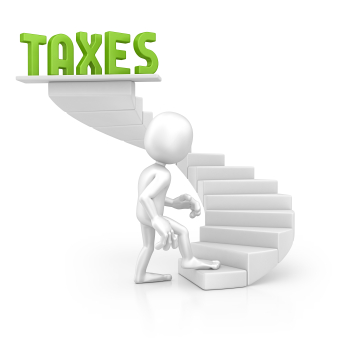
What expenses qualify as an allowable business expense on your income tax return? The Income Tax Act (ITA) has a general rule for deducting a business expense.
An expense is deductible if:
- it was made with the expectation of profit;
- you have original supporting documentation that can be shown to a tax auditor;
- it is reasonable for the circumstances; and
- it is not personal in nature.
This means that unless the item is specifically subject to limitations or disallowed by ITA, it is deductible if it will earn or contribute to earning the business income.
The expenses usually fall into one of three categories. Things you use ...
- Exclusively to run your business ... like office space and its associated utilities.
- While doing business ... like using your vehicle for meeting customers.
- Solely in operating your business ... like supplies you consume to provide your service such as toner ink, printer paper, shampoo, nail polish, drill bits or saw blades.
Operating Expenses vs Capital Costs
Something to always keep in the back of your mind is that capital expenditures such as office renovations, equipment or office furniture are treated differently for accounting and tax purposes than operating expenses which are required for day-to-day operation of your business.
This means operating expenses are 100% deductible (unless there are specific limitations) while capital expenditures must adhere to claiming the expense at capital cost allowance (CCA) rates. As claiming CCA is optional, it allows your accountant to maximize your tax savings by choosing when to claim CCA - now or in the future.
What does Reasonable Expectation of Profit Mean?
Self employed tax deductions are available if you can show your intention is to make a profit.
Expenses must be reasonable, not personal in nature and backed up with support documentation. This concept is called reasonable expectation of profit.
The CRA used to disallow continual and significant business losses because they would argue there was no expectation of profit and therefore the expenses were not incurred to earn income. The 2002 CSC 46 - Stewart v the Queen Court Case challenged this.
The Court Case ruling meant the CRA must now approach the deductibility of these losses in two steps:
- Determine whether the activity is personal in nature, or is it a legitimate commercial activity; then
- Determine the deductibility of the expenses.
This Court Case lead the CRA to no longer assesses for reasonable expectation of profit UNLESS there is a personal element in the business transaction ... another reason to keep your business and personal expenses separate.
However, having said that, it is NOT recommended to continually claim businesses losses that are offsetting other income. CRA would likely be willing to challenge you as almost all small businesses suffering ongoing losses have personal components to them.
Reference: Thomson Reuters May 30, 2022 Blog - Losses and the reasonable expectation of profit
AUDIT READY BOOKS
It is always advisable to keep a Business Journal when first starting your business. Capturing the reason you are undertaking the activity and how it will make a profit for your business helps meet the expectations of profit criteria for deductibility.
More >> How To Ease The Pain of a CRA Audit
Why You Want A Business Journal
One of Evelyn Jacks (a Canadian tax expert) earlier publications recommended that when you start your business keep a Business Journal. Use it to journalize all your business activities including:
- the reason you are undertaking them; and
- how they will increase your expectation of profit.
The Business Journal provides an audit trail and establishes the "expectation of profit" test. It will also help support the general statement that business expenses are deductible if they are reasonable.
This is especially important if your business has a hobby aspect or personal aspect to it. You will need to prove that you are carrying on your business in a commercial manner in case CRA challenges your self employed tax deductions that created a loss.
You should be aware that if audited, the burden of proof lies with the taxpayer who has to disprove CRA's (re)assessment of taxes ... ... so you should be prepared to explain and show the tax auditor how the expense contributed to earning business income.
If you think about how you are taxed, you want to maximize your legal deductions to reduce your taxes. Knowing what is deductible for tax purposes should help in your spending decisions ... but never make your business decisions solely on tax considerations.
Remember too that one of the criteria for deductibility is the expectation of profit. This means at some point you should be earning a profit ... which means you pay taxes. There are only five ways to pay no tax ... and each one means you are not running a successful, profitable business.
One of your obligations as a small business owner is to learn how to legally minimize your self employed taxes owing.

Audit Ready Books
Vehicle Expenses on Line 9281
Let's get this topic out of the way ... because it is a popular one when discussing self employed tax deductions! It is always scrutinized during an audit.
As the rules for claiming business use of auto expenses are complicated and very inflexible, CRA auditors will always examine them. Follow the rules closely for business use of your personal vehicle if you want your deduction to pass a tax audit.
To claim this deduction requires you keep an auto mileage logbook as your personal use of the vehicle must be eliminated.
There are special rules to deduct your input tax credits for your personal vehicle ... which you can read about here.
Line 8521 - Advertising

It is not uncommon as a sole proprietor to have self employed tax deductions for advertising. Before you contract for any advertising expenses, learn what is and is not tax deductible for a business in Canada.
As determined under the general rule of deductibility, any expense you pay to promote your business or your brand counts as advertising if it is reasonable. Here are examples of promotional materials that would be tax deductible:
- printed business cards,
- promotional brochures,
- marketing professional fees,
- customer appreciation events
- sponsorship of local sports teams that are tied directly to your brand or company.
- logo design
- domain name and registration - if it is under $500 and the purpose of your site is to advertise and promote your business and/or products and services; for clarity it is not for an information website.
- web hosting services - if the purpose of your site is to advertise and promote your business and/or products and services but there are other options for this expense such as line 8760 dues and subscriptions; for clarity it cannot be an informational website.
Some obvious forms of advertising would be:
- Yellow Page advertising,
- bill boards
- magazines or journals - see below for restrictions
- newspaper ads - see below for restrictions
- online digital banner ads - see below for further explanation
- radio and TV spots - see below for restrictions
NEWSPAPERS, RADIO, AND TELEVISION ADVERTISING
Canadian advertisements in newspapers or broadcast on TV or radio that originate in Canada are 100% deductible ... as are any finder's fees paid. Ads with foreign broadcasters are not deductible, even if directed mainly to a Canadian market.
Online publications are not considered broadcast or print, so advertising online is not subject to any domestic or foreign restrictions at the current time.
PERIODICAL RESTRICTIONS
Advertising in periodicals such as magazines or journals that are distributed by a Canadian media company AND directed to a Canadian market with 80% or more Canadian editorial content is 100% deductible. Editorial content means content that is not sponsored or based on an advertisement.
If the publication is less than 80% Canadian editorial content such as most fashion or home decorating magazines, you are permitted a 50% claim of your advertising cost.
AUDIT READY BOOKS
To have audit ready books, keep a copy of all your print ads. Have the invoices describing your TV or radio ads and when they aired. As a small business owner, keeping your advertising local whenever possible reduces the likelihood of it not being allowed in an audit.
WHAT NOT TO CLAIM ON THIS LINE
While these expenses may be valid advertising expenses, they are better claimed on other lines of your tax schedule.
- Meals and entertainment to promote your business cannot be claimed here. They should be claimed on line 8523 and are subject to limitations.
- Convention and trade shows are claimed on line 9270 and are subject to limitations.
- Trademark and copyright expenses should be capitalized even though they are building your brand. However any research or development costs related to obtaining a trademark or copyright should not be capitalized and could be considered brand promotion.
- Web design services - the Income Tax Act (ITA) directs amounts to be capitalized under class 50 computer related if the expense is over $500. It should be claimed on line 9270 if under $500.
- Rent paid to have a booth at a trade show should be claimed on line 8910.

Audit Ready Books
Line 8523 Meals & Entertainment
Meals and entertainment are routinely audited by CRA to ensure it qualifies for a self employed tax deduction and that the limitations for deductibility were adhered to.
Meal and entertainment expenses fall into three categories:
- 100% deductible
- 50% deductible
- Never deductible
The three meal and entertainment deductibility categories are discussed on their own page as this is a complex deduction.
Line 8590 - Bad Debts
Line 8230 - Recovery of Bad Debts
Line 9270 - Reserve For Doubtful Accounts
Line 8290 - Reserve Deducted Last Year

SPECIFIC BAD DEBT WRITE-OFFS
CRA Bulletin IT-442R (archived) Bad Debts and Reserves for Doubtful Debts states , "a bad debt may be claimed in a taxation year only if the debt became bad in that year regardless of how long the debt may have been outstanding. It also follows that a deduction for a debt that became bad in one taxation year cannot be deferred and claimed in a subsequent taxation year."
Specific accounts receivable (not allowances for doubtful accounts) that have been written off to bad debt expense and were previously included in your income, are tax deductible on line 8590.
AUDIT READY
Bad Debt Recovery
If you subsequently recover this bad debt ... and because you took a tax deduction on this amount in a prior year, you must show this recovery of bad debt as income for tax purposes on line 8230 (Part 3C - Gross business or professional income) of Form T2125 in the year the recovery was made.
ALLOWANCE FOR DOUBTFUL ACCOUNTS
CRA Bulletin IT-442R (archived) says you can report your doubtful allowance on line 9270 (excluding the specific write-offs above) as a reserve. The next year you must take the reserve into income on line 8290 (Part 3C - Gross business or professional income) ... and book a totally new reserve BUT as with the bad debt write-off, your doubtful reserve must identify which debts are doubtful. ASPE (Accounting Standards for Private Enterprise in Canada) allowance method does not usually do this though it is permitted to specifically trace accounts.
AUDIT READY BOOKS
GST HST Return Adjustments
Don't forget that bad debt affects your GST HST returns. Here's what needs to be done:
- On line 107 (Adjustments) of your GST/HST return, you report your ITCs pertaining to a bad debt write-off previously included on line 103.
- Any subsequent recovery of the bad debt requires an entry to line 104 (Adjustments) for the ITC portion of the entry.
You can find detailed instructions on making the adjustments in CRA publication RC4022 General Information for GST/HST Registrants under bad debt adjustments and or bad debt recovered.
Line 8690 - Insurance

Business insurance premiums are an allowable self employed tax deduction. Include regular business insurance premiums you incur for premises, machinery and equipment you use for your self employed work on line 8690.
AUDIT READY BOOKS
WHAT NOT TO CLAIM ON THIS LINE
Do NOT report vehicle insurance expenses here. They are reported on page 8 of the T2125 form - Chart A Motor vehicle expenses line 5. Chart A totals flow through to Line 9281.
Do NOT report insurance coverage relating to your home office on this line. It should be reported on page 4 of the T2125 form - Part 7 - Calculating business-use-of-home expenses line 7C. Part 7 totals flow through to Line 9945.
Do NOT report life insurance premiums here. Under the ITA section 18(1)(b), life insurance premiums are not tax deductible as the proceeds would be received tax free. However there may be an exception if you use your life insurance policy as a collateral for a business related loan.
Fire insurance appraisals and business insurance appraisals are reported on line 8710.
Line 9224 - Non-Auto Fuel Costs
Include the cost of gas, diesel and propane, motor oil, lubricants you use for your self-employed work on line 9224.
AUDIT READY BOOKS
WHAT NOT TO CLAIM ON THIS LINE
Do NOT report vehicle fuel expenses here. They are reported on page 8 of the T2125 form - Chart A Motor vehicle expenses line 3.
Line 8710 - Interest and Bank Charges

Generally, you can deduct interest on money borrowed or land acquired for business purposes.
Fees paid to get a loan, buy or improve property, reduce loan interest or prepay a loan are all deductible ... I think you get the picture.
Fire insurance appraisals and business insurance appraisals are two self employed tax deductions that are claimed on this line ... I know very odd. I'd have chosen to deduct them under insurance.
Guarantee or stand-by fees, filing fees are deductible in the year they are incurred.
AUDIT READY BOOKS
You have the option of capitalizing your interest expense pertaining to money you borrowed for depreciable property, resource property or E&D costs.
CRA PENALTIES AND INTEREST CHARGES
Since March 22, 2004, most fines and penalties imposed under the law of Canada or a province or a foreign country are no longer tax deductible. In B.C. this includes penalties from WorkSafe BC as WCB is considered a public body under ITA section 67.6.
CRA does not allow you to deduct penalties and interest when preparing your tax return. However, they are still legitimate business expenses to show on your financial statements; just not tax deductible ones. So how do you book the non-deductible expenses?
I create two sub accounts under my Interest account (substitute what ever you call you it). One sub account is titled tax deductible and the other is titled not tax deductible.
As you are permitted to offset any CRA interest expense with CRA interest received ... this is one instance where I book CRA interest income to the Interest Expense Not Deductible account.
This makes it easy when preparing your T1 Form T2125 on what not to claim. This will be a permanent difference between between your books and your tax return ... as opposed to a temporary difference which is due to timing ... like amortization for example.
It is worth your time to read up on this self employed tax deduction in CRA's T4002 publication as well as CRA IT-533 Bulletin - Interest Deductibility and Related Issues.
WHAT NOT TO CLAIM ON THIS LINE
All fees related to buying or improving business property are deducted over a five year period and are not tied to any loan period.
Do NOT report vehicle loan related interest here. They are reported on page 8 of the T2125 form - Chart A Motor vehicle expenses line 4. Chart A totals flow through to Line 9281.
Bank service charges incurred to run your business (if you have a separate business bank account) are deducted on line 8871 - Management and administration fees.
You cannot deduct interest expenses related to your home office. This self employment tax deduction must be claimed on line 9945.
Line 8760 - Dues and Subscriptions

Business taxes (not income tax though) and business license fees are an allowable self employed tax deduction. They actually help prove you are running a business as opposed to say a hobby. Report these expenses on line 8760.
Report dues, memberships in a trade association, and publication subscription amounts if they pertain to running your business or trade on this line as well.
Self employed professionals report their Professional Dues here on the T1 Form 2125 and not on line 21200 Annual union, professional, or like dues.
AUDIT READY BOOKS
Domain Registration and Web Hosting Services
Domain registration and web hosting services for informational websites are claimed here if you pay a monthly or annual subscription fee; or another possibility is line 9270 Other Expenses. If the purpose of your site is to advertise and promote your business and/or products and services, categorize it as advertising on line 8521. See the next section if the expense is not monthly or annual and over $500 as this self employed tax deduction runs into ITA limitations.
WHAT NOT TO CLAIM
CLUB DEDUCTIBILITY RESTRICTIONS
Club initiation fees, club memberships and dues in dining, recreational or sporting clubs are not a self employed tax deduction if the main purpose of the club is dining, recreation or sporting activities.
CRA changed their position about meals at a golf course (in 2008 I believe). Previously they were not deductible. Now if a meal is consumed at the club after a golf game, it is deductible. The meeting must have a genuine business purpose.
(My interpretation is that the person being entertained for business purposes should be a client, supplier or employee that helps the business generate income.)
Be aware that beverages and meal expenses consumed at a golf course must be clearly itemized to qualify for the deduction. Get your green fees paid on a separate receipt from your meals. This is not charged on line 8760. Green fee expenses are not considered dues. The meals are charged to line 8523.
DOMAIN NAME REGISTRATION AND WEB HOSTING LIMITATIONS
If you paid over $500 for the domain name and registration .... and it has a life that is greater than a one year time period, you need to capitalize it under class 14.1 - depreciable property that does not physically exist but gives you lasting economic benefit such as licenses.
The majority of domains allow the registrant an automatic right to renewal for an indefinite period. You can read more on this in web related outlays.
If you paid over $500 for web design services, you run into ITA (Income Tax Act) limitation rules. This type of self employment tax deduction would be capitalized under class 50 (computer related amounts) ... because the web site will last more than one year. Find out more details about web design outlays.
Line 8810 - Office Expenses
Line 8811 - Business Supplies
Line 9275 - Delivery Expenses

I've grouped these three lines together.
Line 8810 is where all the self employed tax deductions pertaining to running your office go .. copy paper, toner, stationary, envelopes, paper clips, stamps, pens, pencils ... but NOT capital items like office furniture or equipment.
Line 8811 is for supply items that indirectly help you provide your service or product such as cleaning supplies, bags for customer purchases, etc. Consumable supplies such as drill bits for a handyman or shampoo in a salon are claimed here because they get "used up" in the course of doing business.
I included line 9275 self employed tax deductions for business delivery expenses with this group because you often have them when you order supplies for the business to be delivered. They are coded separately to delivery expense and not lumped into office expenses or business supplies.
AUDIT READY
In Canada, coffee supplies, bottled water and food for clients should be claimed under meals and entertainment as it can be consumed by humans. Sorry, your coffee while sitting in a cafe working on your laptop is a personal expense and never deductible as is grabbing a coffee while running business errands.
You could book your ongoing computer app fees to office expenses but as most of them usually pertain to administration work like inventory management, customer invoicing, document management, bookkeeping, etc., it's better to book them to line 8871 Management and Admin Fees.
You could book your internet costs here, but Line 9220 Utilities is a better spot for these expenses to land.
WHAT NOT TO CLAIM HERE
Do not record your delivery fees associated with purchasing your office expenses or business supplies on lines 8810 or 8811. Claim them on line 9275.
Claim monthly fees associated with software as a service (SaaS) on line 8871 - Management and administration fees. Example would be QuickBooks Online or LedgerDocs.
Capital items such as filing cabinets, desks, chairs, calculators go on page five of T2125 Area A - Calculation of Capital Cost Allowance (CCA) Claim.
An argument could be made for deducting off-the-shelf software under $500 to either office supplies or supplies; but I prefer to code it to line 8871 - Management and administrative fees.
As a self employed worker, small tools are considered assets.
- Small tools over $500 are recorded on your balance sheet and claimed under CCA class 8 which has a 20% depreciated rate.
- Small tools under $500 are recorded on your balance sheet and claimed under CCA class 12 which has a 100% depreciated rate. As CCA is an optional claim, recording it here rather than line 8811 lets your accountant decide when it is advantageous to write the expense off which may or may not be the current tax year.
Line 8860 - Professional Fees

This is the spot to deduct legal fees, accounting fees, consulting fees, bookkeeping fees, tax preparation fees and tax compliance fees.
You can also deduct objection or appeal fees for accounting and legal work pertaining to government assessments.
AUDIT READY
Hiring a freelance contractor may set off the requirement for issuing a T4A slip. Review the requirements to see if it's applicable to your circumstances.
WHAT NOT TO CLAIM HERE
Fire insurance appraisals and business insurance appraisals are deductible on line 8710 - Interest.
Appraisal fees relating to the sale of property or the sale of your business are capitalized and not expensed. The same goes for accounting and legal fees pertaining to the purchase of property ... capitalize them ... don't expense them.
Line 8871 - Management and Admin Fees
Claim any management and administration fees you incurred to run your business. Include your bank service charges for your chequing account here; as well as any bank or credit card processing fees and cheque ordering expenses.
Claim monthly fees associated with software as a service (SaaS) on line 8871. Example would be QuickBooks Online, Xero, Dext, LedgerDocs or any cloud based software or apps.
I like to create a sub account to easily keep an eye on the costs for ongoing computer app fees. as most of them usually pertain to administration work like inventory management, customer invoicing, document management, bookkeeping, etc.
AUDIT READY
WHAT NOT TO CLAIM HERE
Do NOT claim any costs associated with management salaries, property taxes or rent on line 8871.
- All salaries are claimed on line 9060.
- Property taxes are claimed on line 9180.
- Rent is claimed on line 8910.
Lines 8910, 8960, 9180, 9220 - Place of Business Expenses

The following self employed tax deduction items are allowed BUT ... anything related directly to your home office must be claimed through home office expenses on Part 7 of the T2125 form.
Line 8910 - Rent
Claim all your rent expenses here from the exclusive physical workspace used to run the business, your storage facility, or rent paid to have a booth at a trade show.
AUDIT READY
Be able to produce your rental or lease agreement. If you pay your rent with cash (which I don't recommend) make sure you receive a receipt. You'll need it for proof of payment.
WHAT NOT TO CLAIM HERE
If you work from home, rent expense related to the business-use-of-your-home should be claimed under Part 7 of the T2125 form which flows through to line 9945.
Computer and other equipment leasing costs are claimed on line 9270 NOT as rent on line 8910.
Sidebar: If you buy a computer or other equipment, you cannot deduct the cost anywhere in Part 4 of the T2125 form. You can deduct CCA and interest on borrowed money to purchase the equipment by capitalizing the purchase.
Line 8960 - Repairs and Maintenance
Deduct the cost of labor and materials for MINOR repairs and maintenance to property you occupy to earn business income.
AUDIT READY
WHAT NOT TO CLAIM HERE
Be aware there is a labor limitation. You are not allowed to deduct your own labor related to maintenance and repair to capital property. This is a big NO-NO!
Major repairs and maintenance need to be capitalized and cannot be expensed on line 8960.
Line 9180 - Property Taxes
Here is where you claim the taxes paid on the property where your business resides.
AUDIT READY
WHAT NOT TO CLAIM HERE
If you work from home, property tax related to the business-use-of-your-home should be claimed under Part 7 of the T2125 form which flows through to line 9945.
Line 9220 - Telephone and Utilities
This line allows you to claim your business landline, business cell phones, business internet, electricity, water, gas, and garbage services for your business premises.
If you work from home and have a separate internet line for your business, you can deduct 100% of it here. If it is not a separate Internet line, use CRA's process to only book the business portion of the plan; for clarity, exclude the personal-use portion. Hey CRA audits this stuff so do it right! It's easy pick'ins for them.
Case in point, Jamie Golombek, a columnist at The Financial Post, has been dealing with expenses he claimed as an employee working from home during pandemic restrictions. In 2022, his 2020 and 2021 home office expenses were audited. He finally reached a settlement at the end of June, 2024.
One of the issues was his claim for a TV and Internet bundle used solely for his employment. In June, 2024, they finally allowed a prorated amount to be allowed for the internet but refused to allow the use of the TV as a legit employment expense. He uses the TV to watch BNN Bloomberg throughout the day while he works at his desk. Given his job, it is kind of necessary.
AUDIT READY
Limitation Home Phone Line
If you have a separate business landline in your home, it is 100% a self employed tax deduction.
If you don’t have a separate business line, use of your home telephone for business can be a problem.
The monthly rental is not a home business tax deduction if it is also used by the household for personal use … but the long distance billings pertaining to the business are a self employed tax deduction on line 9220. Any business add-ons to your personal home line are also tax deductible on line 9220.
Personal expenses are NOT deductible.
This where if it looks like a duck, swims like a duck, quacks like a duck, it is probably a duck is important. The line can get blurred between business and personal when you work from your home. So always, always, always keep your business expenses separate from your personal expenses.
If the item or expense relates to personal use or consumption, it is not tax deductible … so if you purchased goods or services for your business and you or your family used them for personal use like your internet connection, home phone line, food, or home maintenance, … and don’t forget property like your computer or office supplies … the personal portion is not considered a business expense and is not deductible.
If you work from home and don't have a separate internet line, you will need to prorate the amount to exclude personal use by the family and report the business portion only on line 9220. Make good notes in the memo area of your bookkeeping entry.
WHAT NOT TO CLAIM HERE
If you work from home, utilities (as defined above except landline, cell and internet) related to the business-use-of-your-home should be claimed under Part 7 of the T2125 form which flows through to line 9945. You can see on the form these expenses are prorated based on the square footage of your workspace.
Yellow page advertising expenses included in your phone bill are claimed under advertising on line 8521.
Phone equipment is not expensed but capitalized on page five of T2125 Capital Cost Allowance. Enter your information to Areas B Additions or D Deletions on page six. These totals are then carried up to the Area A CCA claim on page five.
Lines 9060, 8340, 8360 - Wages, Salaries and Subcontract Payments

Deduct salaries, indirect wage, employee benefits and payroll taxes (CPP, EI) that are reported on T4 slips on line 9060 with the following exceptions:
- direct wage costs are reported on page 3 line 8340 of the T2125 Part 3D - Cost of goods sold and gross profit;
- subcontract amounts paid to outside help are reported on page 3 line 8360 of the T2125 Part 3D - Cost of goods sold and gross profit;
- professionals fees* like accountants, lawyers, bookkeepers, consultants, tax preparation have their own classification and are reported on line 8860 of the T2125 Part 3D - Professional and legal fees; and
- sole proprietor draws or equity withdrawals are reported in the equity section on page 4 line 9932 of the T2125 Part 9 - Details of equity.
*To clarify - if you are in a profession as opposed to a trade, outside professional services hired would be charged to subcontract amounts. For example, if a certified professional bookkeeper running their own practice hires a freelance bookkeeper rather than an employee to help with the workload, the freelancer would be considered a subcontractor. If you are a business owner and hire a freelance bookkeeper to do your bookkeeping, the cost of the freelancer would be considered professional fees. This is an example of where context is important in deciding where to claim allowable self employed tax deductions.
Direct wages refers to employee wages paid for labour engaged in production of your goods or delivery of services to the marketplace.
Examples of production labour would be employees involved directly in manufacturing or producing the good.
Examples of direct labour for businesses in the service industry would be wait staff, retail sales people, salon hair stylists, or public accountants and public lawyers - any employee providing a service directly to the customers.
Tracking direct labour costs helps your price your product or service profitably.
Indirect wages refers to employees who perform functions that help others produce the goods or services the business provided. Examples of indirect labour would be sales people who sell the product, administration employees, accounting employees, managers and supervisors, the maintenance employees.
AUDIT READY
Wages paid to family members must meet specific criteria to qualify for a self employed tax deduction. They must do the work they are paid for and it must be at market value. If they meet the criteria, they must be T4'd annually. Check out CRA's guidance Hiring a family member or a related person or speak with your accountant before you tread here.
The money sole proprietors withdraw from the business do not qualify as self employed tax deductions. You are simply spending your profit, which is taxable.
Line 9200 - Business Travel Expenses

Reasonable travel costs incurred for business purposes are an allowable self employed tax deduction and include public transportation fees and hotel accommodations. Examples of allowable business travel are sales meetings, trade shows, conferences, or going to clients' locations
Allowable travel costs are transportation, accommodation, and meals. Transportation does not include motor vehicle expenses.
Unlike convention meals, S. 67.1(4) of the Tax Act does not require any adjustment for your meals when they are included in your ticket for travel on bus, airplane, or train.
AUDIT READY
It's important to keep supporting documentation so attach your boarding passes to your paper tickets. As more and more is done online, a paper receipt is not always available. Keep any email notifications, e-boarding passes and e-receipts.
WHAT NOT TO CLAIM HERE
Meals and entertainment expenses have a 50% deductibility limitation as mentioned earlier. They are generally not reported on line 9200 but reported separately on line 8523.
Convention expenses are treated differently and will be discussed in the Other Expenses Line 9270 immediately following.
Line 9270 - Other Expenses

CRA is quite specific of what type of self employed tax deductions they want claimed here instead of other lines ... so here goes:
- disability related modifications;
- computer and other equipment leasing costs;
- property lease payments ... but you do have the option to capitalize this instead so you claim interest expenses and CCA instead;
- convention expenses - 2 per year IF they relate to your business or professional activity AND are held by an organization in the same geographical area where you normally conduct business; (Make sure you see conference expense limitation notes below on what you can't claim.)
- allowable reserves;
- private health services plan premiums if you meet certain conditions;
- plus other legitimate business expenses not listed previously on Form T2125.
AUDIT READY
I know I sound like a broken record, but keep all paper and electronic supporting documents that provides the tax auditor with proof of purchase and proof of payment.
CONVENTIONS LIMITATIONS
The Tax Act, in S. 67.1(2) and S. 67.1(3), has special rules for convention meals. You should deduct $50 per day from the convention fees for meals and beverages (if it is not separately itemized on your bill) ... and report it on line 8523 subject to the stated limitations of 50% deductibility.
If you add on a personal vacation to the convention trip, you must prorate expenses between business and personal. Usually the travel to and from the convention, accommodation for the convention and convention meals are fully deductible.
Of interest to you may be this August 28, 2009 CRA released GST/HST memorandum 27-2: Conventions. In it, what is a convention and what is not a convention is discussed.
Workshops and training courses are not classified as conventions. For more information see CRA publication IT357R2 Expense of Training (Archived).
WHAT NOT TO CLAIM HERE
Do NOT claim lease payments related to vehicles on this line. See Auto Expenses on Line 9281.
As mentioned earlier, if you bought a computer or other equipment, you cannot deduct the cost. You can deduct CCA and interest on borrowed money to purchase the equipment.
Back to top
